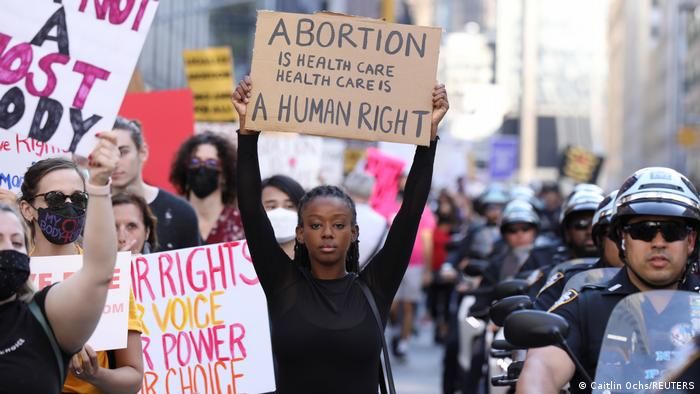Azerbaijan faces high number of selective abortions as Roe v Wade law overturned

By Sabina Mammadli
Abortion is a fundamental healthcare right that terminates a pregnancy. Worldwide, an estimated 1 in 4 pregnancies ends in an abortion annually.
While medical interventions for pregnancies are in high need, many countries ban access to safe and legal abortion services. Regardless of whether abortion is legal or not, people still require and regularly access abortion services. Actually, banning abortions doesn’t stop them from happening; it only limits access to being aborted safely.
The recent decision of the US Supreme Court, overturning the Roe v Wade law, has opened the door for individual states to ban or severely restrict the right of pregnant women to access abortion.
The news has raised concern among human rights activists all over the world, pushing talks on abortion rights high on the international agenda.
A similar case can be observed in Poland, which bans abortion in almost all cases, with exceptions only when a woman's life or health is endangered or if the pregnancy results from rape or incest.
For years, abortion was allowed in the case of fetuses with congenital defects. That exception was struck down by the constitutional court in 2020.
Now, Azerbaijan, where abortion is a legal healthcare procedure, faces a whole other issue of gender-selective abortion. Son preference is a huge problem in many parts of Asia, as well as in the countries of South Caucasus and South-Eastern Europe.
In a recent report, “Preventing Son Preference and Undervaluing of Girls in Eastern Europe and Central Asia,” UNFPA (the United Nations Population Fund) suggests that countries in which sex selection exists usually share three characteristics: a strong preference for male children, falling fertility rates and access to modern ultrasound technologies.
Azerbaijan displays all three characteristics.
Talking on the topic, Farid Babayev, head of the country office of the UNFPA in Azerbaijan, said that Azerbaijan takes one of the top places among the countries with sex imbalance in newborns.
"Unfortunately, there is a sharp decrease in the number of girls born as a result of selective abortions. However, within the framework of the "Involving men in antenatal and child care services" project, extensive educational work was carried out in the regions in this area. It is gratifying that a positive transformation is observed every year,” the official added.
Statistics show that an abnormal increase in the number of male children has been observed in nine countries like Albania, Armenia, Georgia, Vietnam, Taiwan, Tunisia, Montenegro, and South Korea, which also includes Azerbaijan.
However, effective methods have been applied to supplant this problem.
For instance, Azerbaijan participated in UNFPA and European Union’s project “Global Programme to Prevent Son Preference and Gender-biased Sex Selection”, which was first launched across Asia and then in the Caucasus.
Within the global program, the government adopted a National Action Plan on gender-biased sex selection for 2020-2025. Also, its national development plan, “Concept Azerbaijan 2030”, identifies gender equality as a priority. Awareness is growing, and the country has passed major laws and enacted policies enshrining these rights.
--
Sabina Mammadli is AzerNews’ staff journalist, follow her on Twitter: @SabinaMmdl
Follow us on Twitter @AzerNewsAz
Here we are to serve you with news right now. It does not cost much, but worth your attention.
Choose to support open, independent, quality journalism and subscribe on a monthly basis.
By subscribing to our online newspaper, you can have full digital access to all news, analysis, and much more.
You can also follow AzerNEWS on Twitter @AzerNewsAz or Facebook @AzerNewsNewspaper
Thank you!
